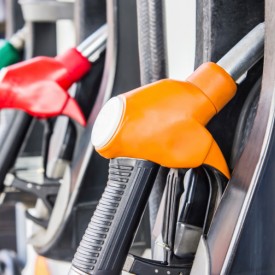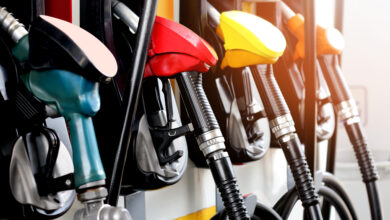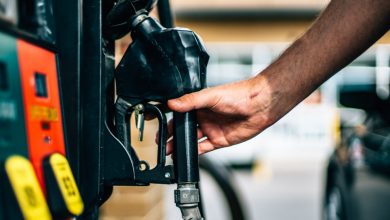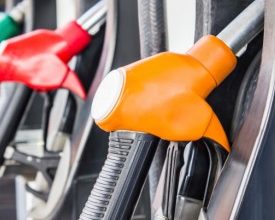AAA: Pump Prices Pause as a Hurricane Comes Ashore

The national average for a gallon of gas wobbled by a few cents before ending up where it started a week ago at $3.22. Pump prices have been sliding recently, but the rapid intensification of Hurricane Helene appears to be having an effect. Meanwhile, the average cost of public EV charging was unchanged.
“Hurricane Helene will likely impact gasoline demand, but not supply,” said Andrew Gross, AAA spokesperson. “The storm is missing the Gulf’s oil production and refining centers as it lumbers through the Southeast. But power outages, structural damage, and road flooding will hinder people from fueling up for a few days. So any impact on the national average will probably be fleeting.”
With an estimated 1.2 million AAA members living in households with one or more electric vehicles, AAA tracks the average kilowatt-per-hour cost for all levels of public charging by state. Thursday, Sept. 26’s national average for a kilowatt of electricity at a public charging station is 35 cents.
According to new data from the Energy Information Administration (EIA), gas demand rose from 8.77 million b/d last week to 9.20. Meanwhile, total domestic gasoline stocks fell slightly from 221.6 million barrels to 220.1, while gasoline production increased last week, averaging 9.8 million barrels daily. Tepid gasoline demand and low oil costs will likely keep pump prices sliding.
Thursday, Sept. 26’s national average for a gallon of gas is $3.22, 13 cents less than a month ago and 61 cents less than a year ago.
Oil Market Dynamics
At the close of Wednesday, Sept. 25’s formal trading session, WTI fell by 1.87 cents to settle at $69.69 a barrel. The EIA reports that crude oil inventories decreased by 4.5 million barrels from the previous week. At 413.0 million barrels, U.S. crude oil inventories are about 5% below the five-year average for this time of year.
Quick Gas and Electricity Stats
Gas
The nation’s top 10 most expensive gasoline markets are California ($4.71), Hawaii ($4.60), Washington ($4.08), Nevada ($3.95), Alaska ($3.68), Oregon ($3.68, Utah ($3.58), Idaho ($3.51), Colorado ($3.49) and Illinois ($3.46).
The nation’s top 10 least expensive gasoline markets are Mississippi ($2.71), Texas ($2.77), Louisiana ($2.77), Tennessee ($2.79), Alabama ($2.80), Oklahoma ($2.82), Arkansas ($2.86), Missouri ($2.88), South Carolina ($2.88) and Kansas ($2.90).
Electric
The nation’s top 10 least expensive states for public charging per kilowatt hour are Kansas (22 cents), Missouri (24 cents), Delaware (26 cents), Wisconsin (28 cents), Nebraska (28 cents), Texas (29 cents), Vermont (30 cents), Michigan (30 cents,) North Dakota (30 cents) and Utah (31 cents).
The nation’s top 10 most expensive states for public charging per kilowatt hour are Hawaii (57 cents), West Virginia (45 cents), Idaho (43 cents), Montana (42 cents), Arkansas (42 cents), South Carolina (42 cents), Kentucky (41 cents), Tennessee (41 cents), South Dakota (41 cents) and Alaska (41 cents).


